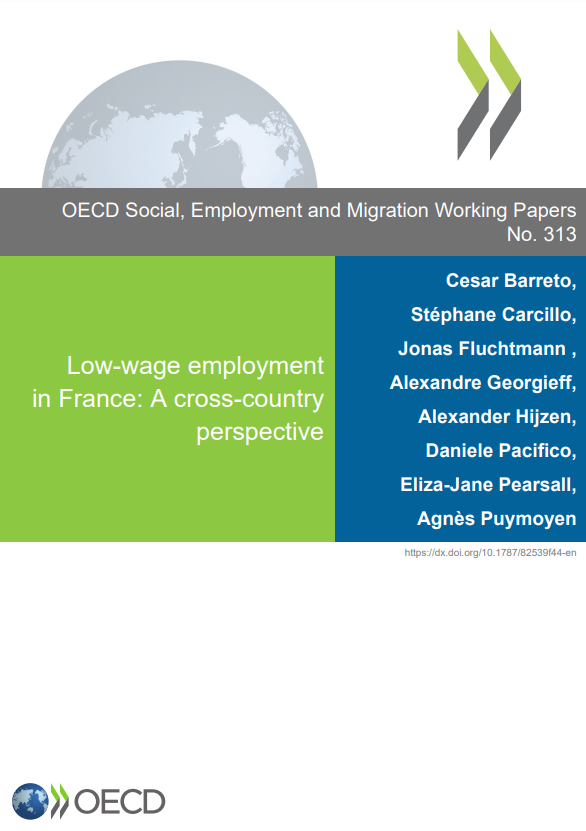
□ 프랑스의 높은 최저임금
- 프랑스의 최저임금은 국제적으로 높은 수준으로, 저임금 고용의 비중을 줄이고 임금 분포를 상단으로 이동시킴
- 하지만 고임금과의 격차가 줄어들어 임금 압축이 발생
□ 저임금 원인
- 저임금은 근로자의 낮은 기술 수준뿐 아니라, 낮은 품질의 기업에도 기인
- 기업 간, 산업 간 품질 차이가 저임금 고용에 영향을 미침
□ 임금 상승 및 이동성
- 프랑스의 저임금 근로자들은 다른 국가와 비교해 임금 상승 가능성은 비슷하나, 고용 이동성은 낮음
□ 세제 및 복지의 영향
- 세제와 복지 혜택이 저임금 근로자의 소득을 증가시키는 데 기여하지만, 임금 상승에 대한 순이익은 제한적
- 특히, 고용주 부담 증가로 인해 고임금 전환이 어렵게 만듦
□ 정책적 시사점
- 기술 훈련 강화 및 고용 유연성 제고가 필요
- 복지 제도의 효율성을 높이고, 기업 부담을 완화하는 정책이 요구됨
프랑스의 높은 최저임금은 저임금 고용을 줄이는 데 긍정적인 영향을 미치지만, 지속 가능한 임금 상승과 고용 이동성을 위해 정책적 개선이 필요함.
목차
Acknowledgements 3
Key findings 6
1. Introduction 7
2. Employment structure and wage paths for low-wage workers 9
2.1. The high minimum wage in France shifts the distribution of low-wage employment upwards 10
2.2. Low wages do not just reflect poor worker skills but also low firm quality 13
2.3. Low-wage workers have no greater difficulty climbing up the wage ladder in France than in other countries 16
3. Wage progression and the tax and benefit system 20
3.1. The net income of low-wage workers has increased over time thanks to the tax and benefit system 20
3.2. The tax and benefit system guarantees incentives to take up low-paid jobs but can curb wage increases for full-time minimum wage workers 25
3.3. Labour cost remains moderate at minimum wage but rises sharply with wage 31
3.4. The overall tax wedge in France is low at the minimum wage but rises sharply with wages 36
3.5. A comparative analysis of skilled occupations in France and Germany 37
4. Conclusion 42
References 43
Annex A. Annex 44



